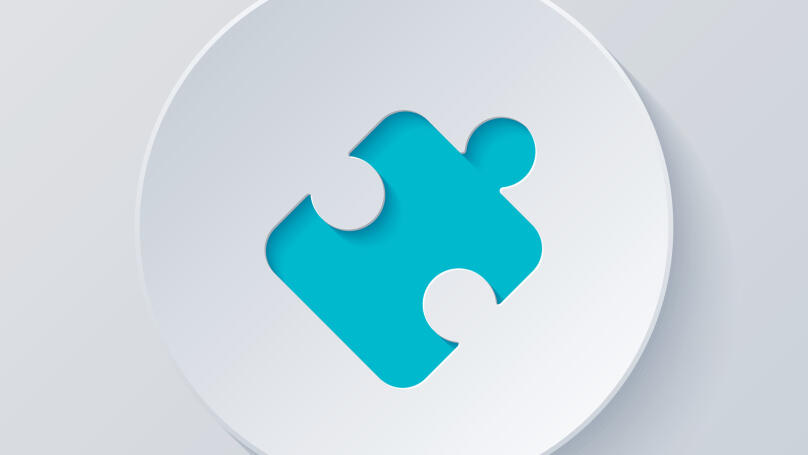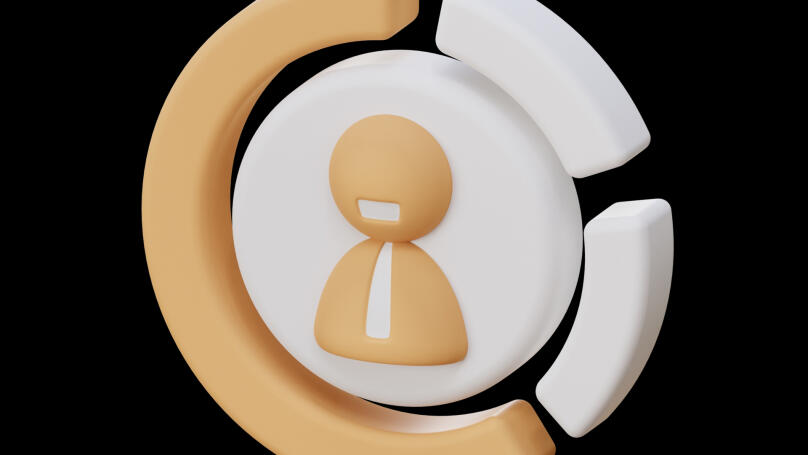Soft skills

What are soft skills?
Soft skills are non-technical skills that define your job. These skills determine how you interact with other people, make decisions, and deal with difficult situations. The definition of soft skills is rather extensive, as the pool of such skills can include more than 300 competencies. But the key meaning of soft skills is that each such skill somehow improves the quality of your work and contributes to your professionalism. For example, a sales manager needs to have communication skills to be successful, while any project manager is doomed to failure without teamwork skills.
All employers require soft skills from candidates. A professional who possesses them automatically gains a competitive advantage in the labour market. After all, they will be able to easily use all these competencies for work and help other employees in their development. So, the importance of soft skills is hard to underestimate, as everyone needs them in today's world.
Soft skill types
What types of soft skills currently exist? Here is the list:
- Leadership skills.
This type of soft skills is one of the most valuable ones. Companies need employees who can manage other people, develop relationships between departments, evaluate, encourage, discipline and motivate, resolve conflicts and act within the corporate culture. - Teamwork skills.
The list of soft skills includes the ability to work in a team and cooperate with people you don't like, while still being comfortable working alone and being able to communicate effectively when trying to achieve a business goal. - Communication skills.
Any skill that deals with communication is included in this type of soft skill. Examples of soft skills of this kind are the ability to communicate verbally and non-verbally, that is, to speak in such a way that people understand you by projecting positive body language. Furthermore, you should be able to communicate in writing and visually, that is, to write reports and messages and convey information through images. Communication soft skills may also include active listening, that is, the ability to express interest in the dialogue and really hear what another person is trying to tell you. Without this skill, the rest of the soft skills of this type will be useless, because you simply won't be able to use them. - Critical thinking skills.
This includes the problem-solving skills that every business needs from a high-paying job candidate. In our turbulent world prone to various crises, the ability to use your knowledge to solve any problem is an invaluable set of skills. Critical thinking skills may also include the ability to extract useful experience from mistakes and failures, which will improve your knowledge and help you not to keep making the same mistakes. - Adaptability skills.
To be competitively viable, a company has to constantly change. The same requirement is imposed on employees: they need to be able to improve soft skills, quickly switch between tasks and swiftly master the skills to incorporate into work. - Stress management skills.
This mainly includes the emotional intelligence skill. In short, this is diplomacy, the ability to compromise, empathy, a healthy attitude towards other people's opinions and criticism, etc. Developing such skills is very difficult, since training takes place on the spot, but they are among the top soft skills in the workplace.
Why soft skills are important

Soft skills are essential because they turn you into a versatile competitor. Thanks to them, you can change careers as many times as you like - soft skills will help you enter any field from a good starting position rather than from scratch. Soft skills will also show the employer that you are an invaluable employee who is set up for growth and professional development in their company. They will know that you can bring them a profit that other subordinates never will. And, of course, a set of such skills will help you build and improve relationships with people close to you, your best friends and relatives, and then maintain them.
People who have well-developed soft skills also find it easier to build trusting relationships with others, since they understand what it means to «keep secrets» and do not talk too much. Therefore, they have many acquaintances, they easily get along with new people, support small talk and answer difficult or unexpected interview questions. Moreover, people with such skills are more confident and proactive than those who do not have developed soft skills. This confidence moves mountains, builds a stellar reputation and wins people over.
Soft skill examples
The list of the most popular soft skills includes the ability to communicate, work in a team and alone, solve problems, manage your time, think critically, discipline yourself and your team, manage stress, adapt to different situations and manage conflicts. Leadership, resourcefulness, creativity, the ability to convince others that you are in the right, and openness to criticism are also among the competencies often mentioned at soft skills assessments.
Soft skills for your resume
Soft skills for a resume are the same competencies we listed above, but with evidence of their successful use. For example, judging by the surveys conducted by the American job aggregator Indeed, employers typically expect advanced skills in communication, customer service, planning, time and project management, analytics, flexibility, and independent work in resumes.
Soft skills in leadership
Soft skills of a leader are the skills of communication, teamwork, employee motivation, problem-solving and decision-making, analytics, people and conflict management, empathy and compassion, confidence, honesty, self-learning, delegation, creativity, planning, and adaptability. Successful leaders are active listeners who are open to feedback and willing to accept negative feedback. Such leaders easily interpret non-verbal signals and find out everything they need through texts in instant messengers. They understand the emotions of others and respond appropriately to them, effectively build teamwork, inspire subordinates, maintain their morale and increase productivity.
Furthermore, leaders with advanced soft skills analyse and evaluate business processes well, and are also responsible for their decisions. Although besides "business" skills, they need a creative streak, the courage not to look at others when choosing a solution to a problem, decisiveness on the verge of folly and well-adapted emotional intelligence. This set of skills allows them to understand why employees behave a certain way and empathise with them. Such leaders are consistent in their actions and values, they are decent and honest, open, transparent, ready to teach others and learn new things. Such managerial soft skills found in one person is a bid for success.
Soft skills in communication
What communication-related skills are most valued now?
Firstly, empathy. This is the ability to hear another person, to understand the reasons for their words and actions, and to be able to adjust your behaviour to these reasons so as not to hurt them but still achieve your goal. Empathy is especially valuable in project management soft skills sets: it turns an uninviting office into a place you want to return to and makes the team invincible.
Secondly, emotional intelligence. In this case, it is the management of one's emotions, their understanding, and the ability to sort out a complex feeling by creating a listing of sensations and ways to cope with them. Emotional intelligence helps you deal well with situations in which you are pressured, confronted, or criticised.
Thirdly, active listening. You should listen to the person and not just hear them. It's like understanding what is written in the book between the lines, and therefore react differently to further events described in it.
Fourthly, integrity. This is sincerity, transparency and honesty, a conscious rejection of lies and masks that cover your personality. This allows you to stop sugar-coating the truth, which affects business processes and the professional development of your team. Moreover, it will demonstrate that you are a responsible person and ready to admit your mistakes, which will definitely please your boss.
Fifthly, adaptability. Flexibility is key to your success. Therefore, you need to work on this soft skill every day. Without being able to adapt to the situation, calmly change jobs in different industries, and use your knowledge in the most unexpected moments, you have nothing to give to the labour market. The skill of changing goals and flexibility will make you a top candidate for the vacancies you are interested in.

Soft skills in customer service
Customer service soft skills include, first of all, the ability to communicate. It means understanding the customer's needs, being able to articulate how you can help them, being literate, speaking clearly, and keeping your tone calm. Soft skills for customer service are also about the ability to listen and hear, which allows you to quickly understand the customer and find a solution to their problem. Through this behaviour, the customer will see that you are interested in helping them, and will be more accepting of your recommendations.
Another must-have skill for a sales resume is self-control. You should be able to communicate with anyone, no matter how much you don't like them. Calmness, patience, self-control, and composure are your best friends. This is, in fact, the same stress resistance in sales in a new wrapper.
Other skills important for customer service include assertiveness, the ability to quickly switch between issues, conflict resolution, creativity, diplomacy, empathy, and depersonalisation. The latter means abstract communication, as if "from outside". Is the customer talking to you about their issue? If you were talking to your friend, you would support them and share your experience in a similar situation. However, you are speaking to the customer, so you need to say something like: "I understand you, you feel…" or "I know how you feel, this is so… (bad, great, etc.). And that's it. By the way, a good sense of humour can help you a great deal in solving problems with customers. It can even be called a separate soft skill.
Soft skills in project management
In project management, powerful sets of leadership-related skills are essential. Their priority is as high as the priority of technical competencies. The person running the project must be able to manage the work of the team, evaluate and motivate its members, make decisions, and act quickly in difficult situations. Of course, we must not forget about the skills of effective communication and active listening; they will come in handy even if you are working on an engineering project. Conflict management, the ability to create a trusting and comfortable atmosphere, time management, and adaptability will help you become a great project manager.
Soft skills vs hard skills
The main difference between soft skills and hard skills is that hard skills refer to the knowledge and skills needed to perform professional duties. This can be, for example, the ability to work in Excel or create presentations, sell products or draw up marketing strategies. Hard skills are the ability to code, work with Big Data and repair equipment. On the other hand, soft skills are personal qualities that are also related to work, but can be the same for different positions, industries, and companies. Furthermore, they come in handy when dealing with friends and relatives. They are mostly developed through practice, while hard skills can be acquired through theoretical training.
Soft skills training and development

One of the best ways to train soft skills is through practice. If there is no opportunity for you to train them in real life, then courses providing real study cases, replacing situations in which skills could be honed, will be enough. The process of developing soft skills is best performed with a coach, a mentor who knows how to work with such competencies and can simulate situations where you have to learn how to use them. Companies often hire coaches for this purpose. Another option for training soft skills is master classes. It helps if you are sure that you need to develop only a couple of skills, and all your other competencies can easily pass professional assessments. The workshops can be free and take place online, so if you know English, we advise you to look into this possibility and try to attend a couple of relevant events.
Soft skills courses
How to train soft skills to put on a resume if you can't attend lessons from an expensive mentor? Take free online courses that can replace this mentor. These are available on the international educational platform Lectera. In the "Assemble a Brilliant Team. Become a Leader and Unite People" course, you will receive basic leadership skills and hone them using case studies. In the "Communication Guru. A Guide To Affecting People" course, you will learn how to communicate effectively with anyone. The course "How to Develop Creative Thinking: Effective Idea Generation Techniques" is dedicated to training your creativity, while the course "Time Management for Work" is, clearly, about time management. Additionally, you can take the "Emotional Intelligence. Becoming Happier and Faster To Succeed" course o improve your EQ quickly and efficiently.
All of these courses are available for free right now. Sign up and claim your spot, as their number is limited.























